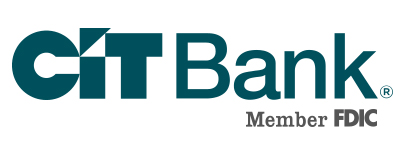Pros:
- Low opening amounts and no fees
- Accounts are entirely online
- Competitive interest rates
- Interest rates are not tiered
Cons:
- Limited personal deposit accounts offered
- MMA does not offer checks or debit card
- Customer service not available 24/7
- Business accounts not offered
Pros:
- Low opening required amounts
- Variety of accounts available
- ATM fee reimbursements
- Competitive rates on most accounts
Cons:
- Must become a member first
- Accounts have tiered interest rates
- Daily cash limits on withdrawals
MemoryBank accounts only require $50 to open. Their accounts do not have monthly maintenances fees. There is no balance required to keep in the account to avoid the fees. The MemoryBank checking account and money market accounts are completely free.
The MemoryBank accounts are entirely online. You apply for the accounts online, and everything for your account is online. Any permanent resident of the U.S., over the age of 18, with an SSN or ITIN, are eligible to open a MemoryBank account.
Both MemoryBank accounts offer competitive interest rates. The checking and money market account rates are competitive with other online accounts. These interest rates are much higher than other brick and mortar bank rates.
MemoryBank interest rates are competitive, and they are not tiered. You do not have to have a large account balance to earn the most competitive interest rates. Any balance earns the most competitive rate offered.
MemoryBank offers limited personal deposit accounts. Those accounts include a checking account and a money market account. You can open as many of these two accounts as you would like, but only the two accounts are available.
The MemoryBank money market account does not offer checks or a debit card. To withdraw money from the money market account, you can make an electronic transfer from the MMA into your checking account. You can also request a check to withdraw money from the MMA.
MemoryBank is an entirely online bank. There are no branch locations. You can reach customer service through email, mail, phone, or through online chat. Customer service does have set hours. Those hours are Monday through Friday from 7:30 a.m. to 8:00 p.m. Eastern Time.
MemoryBank only offers personal deposit accounts. No business accounts are available at this time. The personal deposit accounts offered are a checking account and a money market account.
Navy Federal accounts have low opening required amounts. The savings account only requires $5 to open. The money market account does not have a set amount required to open, but to earn interest requires $2,500. The checking accounts do not have a set amount required to open. The CDs have tiered opening required amounts. The lowest amount to open a regular CD is $1,000. Special CD offers require lower opening amounts.
There are a wide variety of accounts offered through Navy Federal. They offer a savings account, money market account, and CDs. Their CD terms range from three-month terms to seven-year terms. Navy Federal offers five checking accounts. Those accounts include one for students, an online account, and an active duty account. Navy Federal also offers loans and credit cards.
Most Navy Federal checking accounts offer ATM fee reimbursement. Only the Everyday Checking account does not. The reimbursement amount ranges from $10 to $20, depending on the account. Some accounts require a direct deposit to earn the reimbursement.
Most all Navy Federal accounts offer competitive interest rates. The CDs offer the most competitive interest rates. Navy Federal savings and checking accounts earn interest. The rates are lower than online account rates. The money market account rates are slightly lower than online rates. These rates are higher than typical bank rates.
Before you open an account with Navy Federal, you must first become a member of the credit union. Servicemembers and veterans are eligible to join Navy Federal. Department of Defense employees are eligible. Family members of each of these groups can become members of Navy Federal Credit Union.
Navy Federal money market and Flagship checking account have tiered interest rates. To earn the most competitive rate on the MMA requires a balance of at least $50,000. The checking account requires $25,000. To earn the most competitive rate on Navy Federal CDs requires $100,000.
Navy Federal only allows for a daily cash withdrawal of $600. This includes cash from an ATM, a branch, or receiving cash back. There is a daily transaction limit of $3,000 for most checking accounts and $5,000 for the Flagship checking. Their accounts do not typically have limits on the number of transactions.


